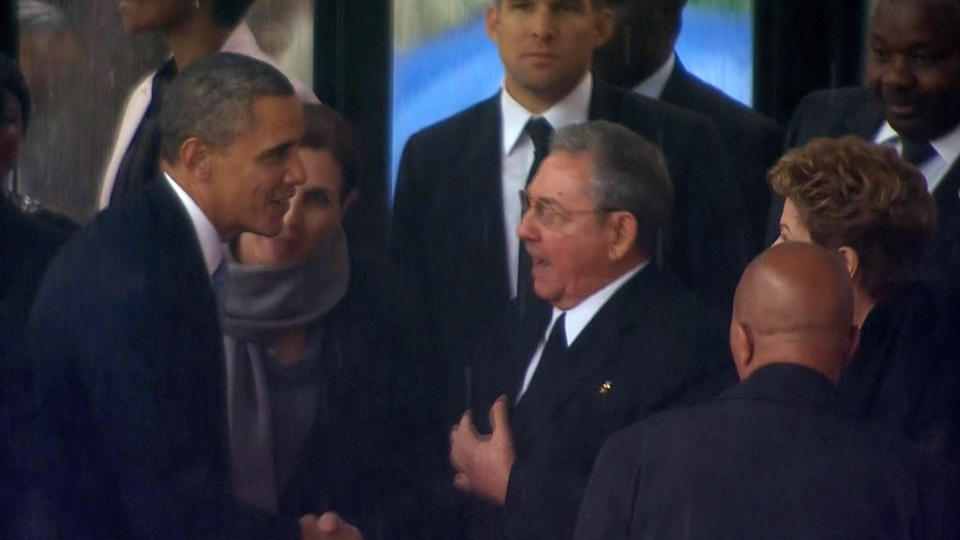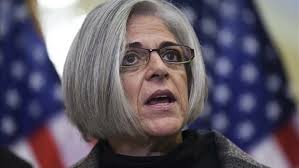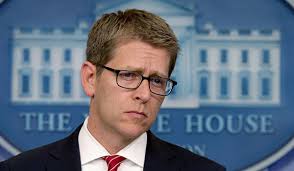
AP investigation helps Obama to take action
It is said that nothing in politics is casual. No envelopes are carelessly left within reach of journalists and no disclosures are overheard in a well-known restaurant in the city. In politics, what’s leaked has objectives, consequences and precedents.
This story neither begins nor ends with the investigation made public on Thursday, April 3, by The Associated Press (AP). That news report gives evidence of only part of a broad ensemble of actions intended to provoke a regime change in Cuba.
What has changed is that, by coming to light, the news allows the current administration to use it as a pivot for an eventual adjustment of U.S. policy toward Cuba.
Let’s not fool ourselves, the USAID is notorious for having participated in covert projects in many parts of the world, most of them in Latin America. Numerous complaints and investigations give proof of its participation in activities that do not correspond to its declared objectives.
For example, in Haiti, the USAID directly supported groups opposed to the deposed president Jean-Bertrand Aristide. There is ample documentation for its links to the coup d’état that overthrew Manuel Zelaya in Honduras, and the USAID’s recent activities in Bolivia led the government of that country to suspend its activities.
It was through USAID, under one of the programs founded by the 1996 Helms-Burton Law, that U.S. subcontractor Alan Gross was arrested, tried and sentenced in 2011 for acts against the independence and integrity of the Cuban State, i.e., introducing equipment designed to create networks of access to the Internet without the supervision of the island’s government. Those networks would be operated by members of opposing groups.
Although the U.S. media and the most important global media groups have repeated that Gross was only trying to take technological aid to the Jewish community on the island, that interpretation was rebutted by the very representatives of that community. Judy Gross, wife of the subcontractor, said many times that Gross worked for the U.S. government and has asked Washington to take action toward his release.

In the AP article, Alan Gross is described as an American subcontractor sentenced after traveling “repeatedly to Cuba on another clandestine mission for the USAID,” which means a de-facto admission of the argument made by Cuba at his trial.
A few weeks ago, the USAID was excluded from the distribution of $17.5 million reserved for programs “pro democracy in Cuba,” with the explanation that it handled programs “in a wrong fashion.” At the time, there was some speculation that the step was related to the “couple of ideas” that Secretary of State John Kerry said he had in connection with Gross.
“I have been meeting repeatedly, particularly in the last few months, on the Alan Gross issue. In fact, I met with his family just a couple of weeks ago and we — I am not going to go into it here, but I will tell you that we are very focused on a couple of possibilities on how we might try to approach [his release],” Kerry told a House panel on March 12.

Reacting to the publication by the AP of information about the ZunZuneo “mission,” the White House responded through spokesman Jay Carney, whose answers were not convincing and contradicted the AP’s investigation, which revealed that neither the Executive Branch nor the Senate subcommittee on the State Department and Foreign Operations had any record of this subversive program.
If the AP is right and the more than 1,000 pages it holds verify its accuracy, the USAID has violated U.S. law and the protocol that establishes the Subcommittee on Appropriations, which controls clandestine operations.
The AP report is published barely four weeks before May,
• when usually the State Department publishes the list of countries that sponsor terrorism, on which — without any basis — Cuba is included;
• when Alan Gross’ situation remains untenable because this is the first time that the U.S. abandons — at least in the public eye — a U.S. citizen held prisoner in enemy territory;
• when the world’s views on Cuba are changing and a growing number of nations are supporting and legitimizing the reforms undertaken by the Cuban government, as evidenced by the support it received from Latin American countries at the CELAC Summit in Havana last January.
That same Latin America told the United States that there will be no Summit of the Americas without the presence of Cuba, a declaration that has taken international policy and the State Department to a crossroads of regional legitimacy with a view to the summit in Panama next year. The Organization of American States itself has admitted that the reasons given for Cuba’s expulsion from the pan-American forum no longer exist.
Out of it all is the United States. Caught in a perplexed embarrassment in the face of Cuba’s ability to reposition itself in the international arena, its policy toward the island no longer has any sense. Additionally, the world’s calls against the blockade and in favor of establishing contact with Cuba present the Obama administration with an ultimatum: admit that U.S. policy against the island has failed and that the regime-change project violates the United States’ own laws. Perforce, it must take measures.
At this juncture, across the table from Cuba, Obama has to think about Alan Gross; about the three Cuban agents serving time in the U.S.; about the inability of the Cuban Interests Office in Washington to carry out consular activities because no bank will represent its financial activities on U.S. soil; about the need to give U.S. citizens the tools to travel easily and without hindrance to Cuba; about ways to facilitate investment in the island, and about the need to begin normalizing a bellicose relationship that has lasted more than 50 years.
The United States must face the need to revise its international policy toward Latin America, and every decision must involve Cuba. To improve relations with the island will allow Washington to be the backbone of a credible project of participation and legitimize itself as a weighty actor in regional policy.
I began by saying that nothing in politics happens by chance. These revelations by the AP provide the framework of a political disaster that the Obama administration could utilize to eliminate Cuba from the list of terrorist nations and establish a general license that allows U.S. citizens to travel to Cuba without excessive tethers. These two measures, while insufficient, are the most expeditious and are measures that the president can take without going through the filters of Congress.
By removing Cuba from that list in which it doesn’t belong and whose inclusion is a leftover from the Mas Canosa era and the golden days of the Cuban American National Foundation, the U.S. could eliminate the restrictions imposed on the Cuban Interests Office and allow signatories of anti-terrorist treaties to interact with the island. This affects banks, financial and credit entities, environmental projects and maritime exploration and a very broad spectrum of possibilities.
It is a shame for the U.S. government that a U.S. citizen, the employee of an official entity, paid with taxpayers’ money, is confined in a Cuban prison. In the same way, it is absurd that three Cuban intelligence agents, sentenced to unjust terms in a trial of questionable impartiality, remain in federal prisons. Both Gross and the three Cubans are victims and hostages of the United States’ policy of hostility and meddling against Cuba.
These revelations of The Associated Press, “opportune” as they are, open — from the fiasco of U.S. international policy and the evidence of State Department derring-do — a road of reforms that will lead to a normalization and opening of relations with the government of Cuba.
Raúl Castro has said that he would sit down to dialogue, on a basis of mutual respect. He has proved that, in the case of the European Union. What is the United States waiting for? What does the United States fear?
While the world sides with Cuba and businessmen show interest in consolidating their presence on the island, the possible American investors are excluded. The Cuban government has signed commercial investment contracts with more than 40 countries, is creating development zones with Latin American capital and is energizing its economy in step with its reforms.
U.S. businessmen demand participation in that new field of investment. Cuba is a natural market for the U.S. farm sector, for the sale of raw materials and projects of cooperation in common fields.
States of opinion are created and sustained. These revelations by the AP, as well as the petition by the Center of Democracy in the Americas to President Obama to eliminate “the wasteful and counterproductive regime change program in Cuba,” obey one need: the forces of power in the U.S. have realized that their relations with Cuba have to change, even though to reach that conclusion they have to experience the embarrassment of a failed policy being exposed.
The price of that shame is much less than perpetuating a chain of follies and injustices. This is the time to be political and accept one’s mistakes. Neither Cuba nor the United States deserve another 50 years of confrontation. The interests that unite us are greater than the vile acts that separate us.
The Associated Press has given Obama, on a silver plate, the argument he needs to exercise his authority. It is time to be the president; it is time to set another policy.
Progreso Semanal/ Weekly authorizes the total or partial reproduction of the articles by our journalists, so long as source and author are identified.


